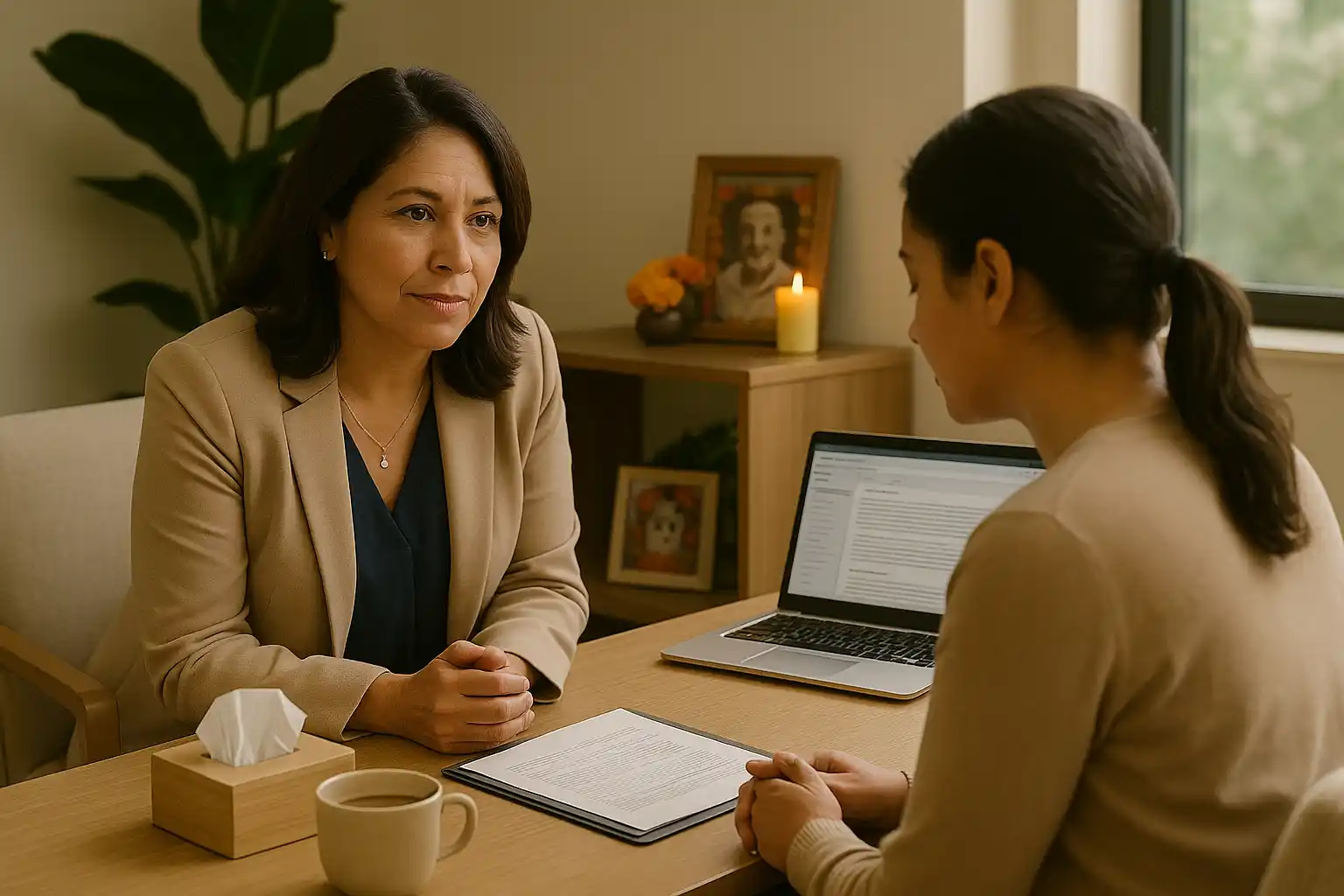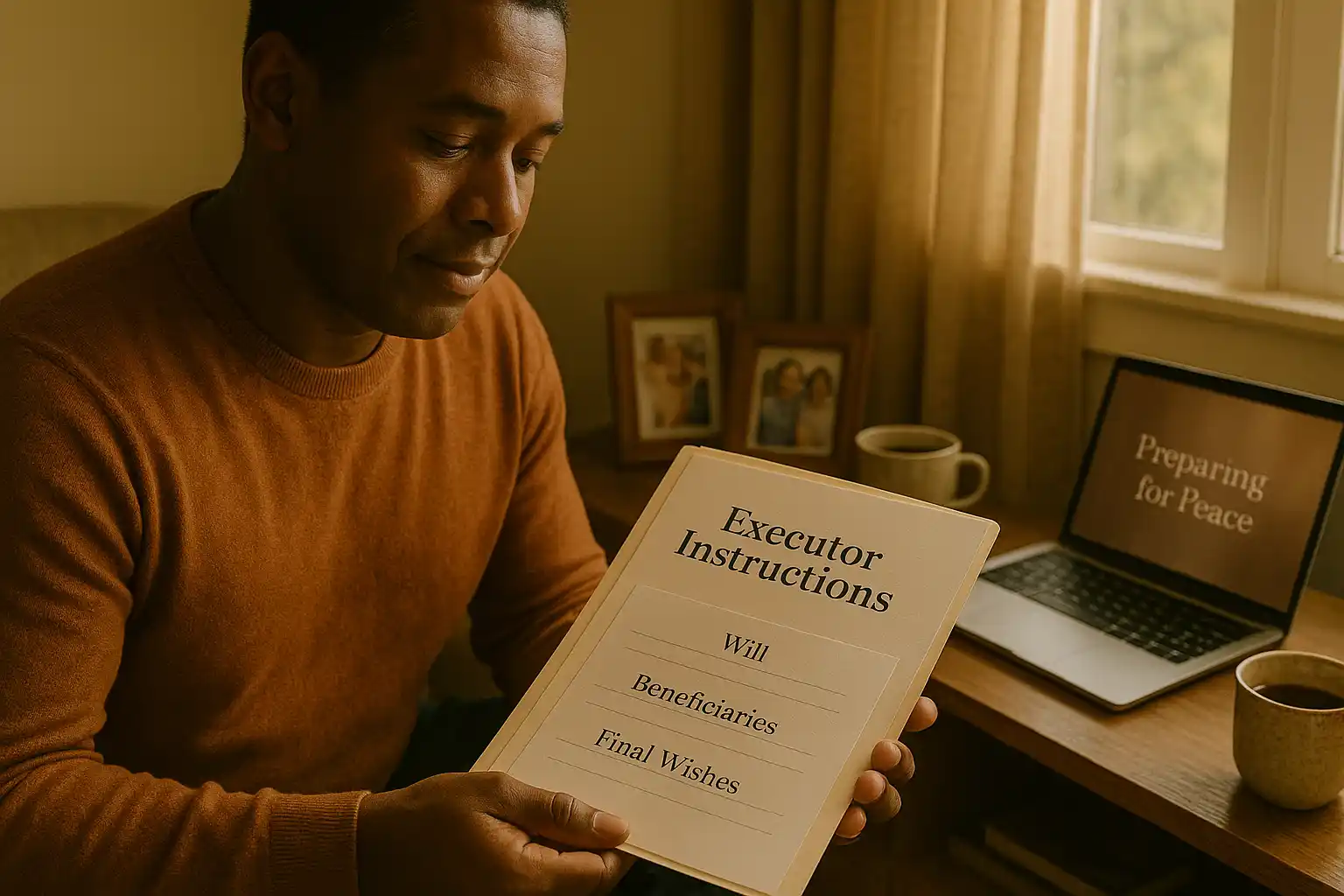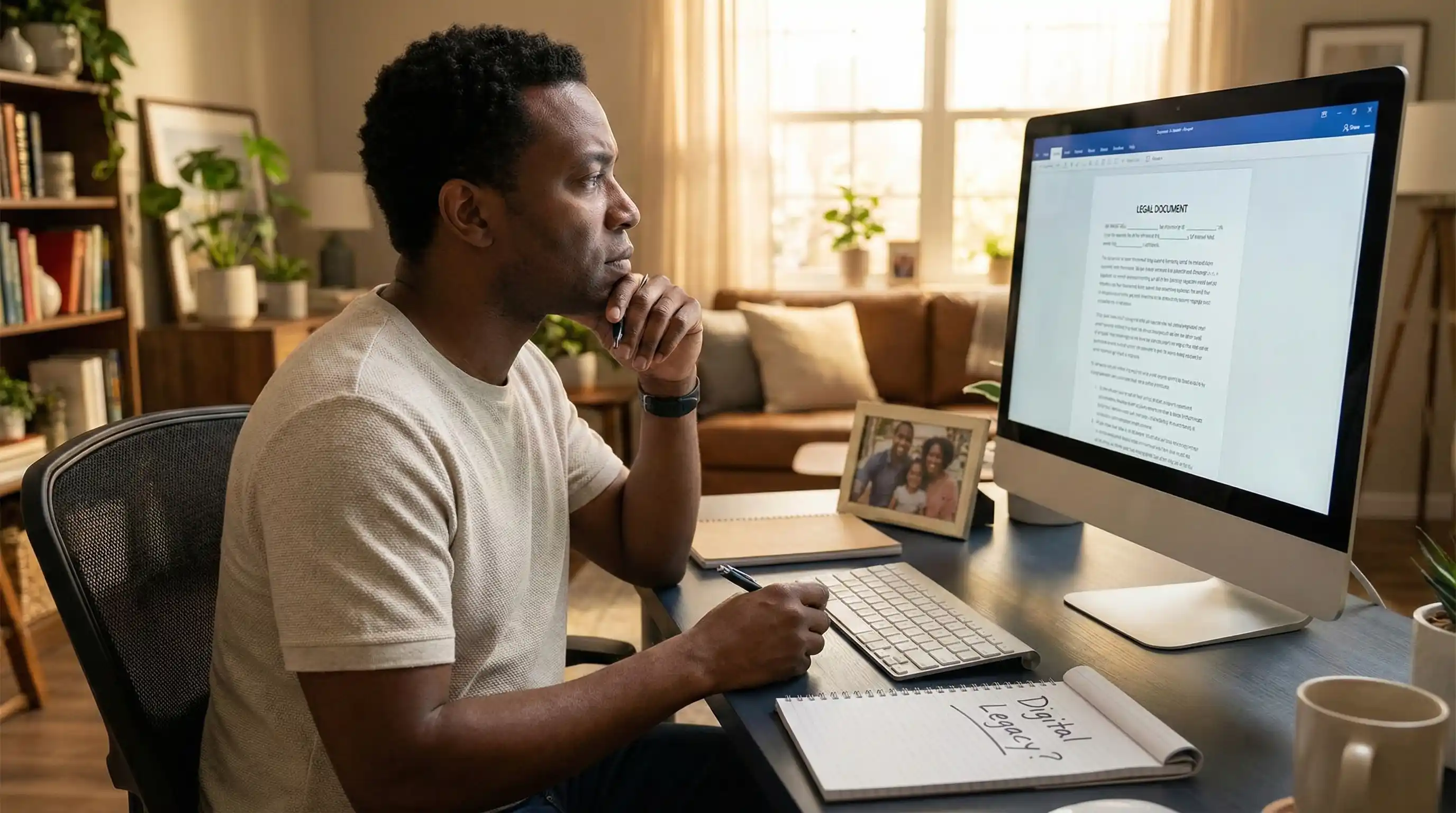Why HR Must Start Talking About Death
Most people don’t expect their HR team to be ready for grief. But when loss strikes, whether through death, caregiving, or a personal health crisis, where do we turn? Often, it is our workplace. It is our manager. It is the HR professional who hands us the bereavement form and quietly says, “Take whatever time you need.” But what if HR could do more than just react? What if it could lead the way?

About This Blog
Most people don’t expect their HR team to be ready for grief.
But when loss strikes, whether through death, caregiving, or a personal health crisis, where do we turn?
Often, it is our workplace.
It is our manager.
It is the HR professional who hands us the bereavement form and quietly says, “Take whatever time you need.”
But what if HR could do more than just react?
What if it could lead the way?
Grief Is Not Outside of Work. It Is Already Here.
For Mercedes Sullivan, an end-of-life doula, cultural strategist, and HR leader, death has never been an abstract concept. Growing up in Mexico, where Día de los Muertos is as much about celebration as it is about remembrance, she learned early that how we approach death says everything about how we live.
Her journey through personal and collective grief from earthquakes and family losses to the death of her father while she was eight months pregnant, it gave her a rare depth of insight into how humans carry pain and how little space our modern systems offer to hold it.
Workplaces Are Unprepared for Grief, Even Though They Are Deeply Involved
Most HR departments are trained in benefits, policies, and compliance. But when an employee walks in and says, “I lost my dad,” the response is often, “I’m so sorry… talk to Employment Services.”
Then what happens?
No guidance.
No roadmap.
No real understanding of what comes next.
Employees who are grieving are expected to coordinate funeral logistics, manage estates, and support family members, all while maintaining deadlines and job performance.
Why Grief Policies Often Miss the Mark
Even the word bereavement feels cold and clinical.
Is the death of a grandparent worth three days off? What about a pet? A chosen family member?
What happens if you are the only person left to manage the entire estate, or if the loss was traumatic and unexpected?
Mercedes emphasizes that grief is personal. It does not follow a timeline. And it is not HR's job to determine whose grief matters. What matters most is emotional nuance, cultural respect, and human dignity.
Practical Tools for HR Professionals
Instead of relying solely on empathy, Mercedes encourages the use of clear, actionable tools that help employees navigate grief with support.
These might include:
Guided benefit navigation powered by AI to personalize available support
Checklists for legal, financial, and logistical steps following a death
Bereavement support that accounts for non-traditional losses, including pets or chosen family
Flexible leave planning based on energy levels rather than a fixed number of days
When these tools are introduced during onboarding and revisited regularly, employees are far more likely to use them before a crisis hits.
How AI Can Strengthen Human Connection
Mercedes is clear that technology is not the solution on its own. But when used with intention, it can extend HR’s capacity for compassion and responsiveness.
AI tools can help:
Suggest benefits based on context, such as caregiving, chronic illness, or mental health needs
Identify patterns of employee burnout and recommend early intervention
Schedule check-ins on grief anniversaries or meaningful dates
Handle administrative tasks so HR professionals can focus on emotional presence
The goal is not to automate empathy. It is to support it through timely insights.
Why the Employee Experience Begins with Deathcare
Mercedes shares a powerful personal story. While eight months pregnant, she lost her father. She returned to work after grieving, only to be laid off two weeks before Christmas—with no severance.
That moment shaped her philosophy.
“How your employer treats you during your worst moment is the true employee experience,” she says.
And she is absolutely right.
A positive work culture is not measured by team lunches or performance reviews. It is measured by how people are treated when they are at their most vulnerable.
The Business Case for Grief Literacy
The financial case for building grief-aware workplaces is clear.
When grief is ignored, companies face increased absenteeism, disengagement, and turnover. But when employees feel genuinely supported, they are more likely to stay, refer others, and perform better.
Grief support is no longer just a compassionate add-on. It is a strategic investment in trust, loyalty, and long-term resilience.
Every Company Has a Culture of Death. Most Just Don’t Realize It.
A company’s culture is not defined by mission statements or wellness webinars. It is defined by how people are treated in their hardest moments.
Can someone say, “I lost someone,” and be met with care instead of discomfort or avoidance?
HR has a powerful role to play in shaping this kind of culture. One rooted in empathy, clarity, and readiness.
Take One Step Forward
If you are in HR:
Start by asking how your team currently supports employees through loss. Identify the gaps. Talk openly about what could be done better.
If you are an employee:
Take a look at the benefits already available to you. Consider what support you might need in the future. Share your experiences with your HR team.
And for everyone:
Let’s bring grief into the workplace conversation. Not with fear, but with compassion and openness. Grief is already part of our lives. It is time we make space for it at work too.
Take the Next Step: Start Planning with My Final Playbook
Related Blog
Duis mi velit, auctor vitae leo a, luctus congue dolor. Nullam at velit quis tortor malesuada ultrices vitae vitae lacus. Curabitur tortor purus, tempor in dignissim eget, convallis in lorem.





Comments